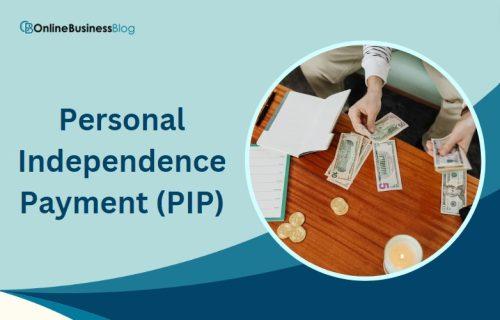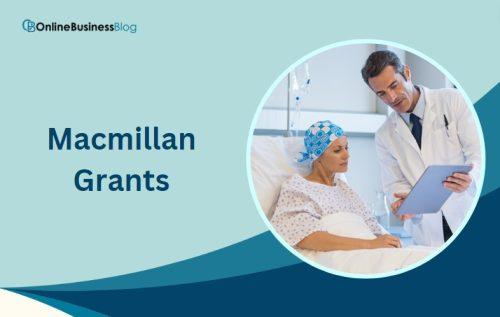Post Contents
Navigating life with cancer can bring about numerous challenges, both physical and emotional. During this difficult time, it’s important to be aware of the support available to you. In the UK, there are various benefits and assistance programs designed specifically for individuals living with cancer. These resources aim to alleviate some of the financial burdens and provide much-needed help in daily life. In this blog post, we will explore what benefits you may be eligible to claim if you have cancer in the UK. From financial aid to practical support, let’s discover how these resources can offer a helping hand on your journey towards healing and well-being.
What Benefits Can I Claim if I Have Cancer in the UK?
Personal Independence Payment (PIP)

Living with a long-term health condition or disability can often bring about additional expenses and challenges. That’s where Personal Independence Payment (PIP) comes into play. PIP is a valuable benefit provided in the UK to assist individuals in covering these extra costs associated with their condition. What sets PIP apart from other benefits is that it isn’t means-tested, meaning that your income or savings won’t affect your eligibility.
The purpose of PIP is to assess how your specific health condition impacts your ability to carry out daily living tasks and mobility. This includes activities such as bathing, dressing, preparing meals, managing medication, and getting around both inside and outside of your home. The assessment process takes into account the difficulties you face due to your health condition and determines the level of support you require.
PIP aims to provide financial assistance based on the impact of your conditions rather than focusing solely on diagnosis or medical treatments received. By evaluating how these factors affect your day-to-day life, PIP ensures that those who need it most receive the necessary support.
In addition to helping cover extra costs related to living with a long-term health condition or disability, PIP also provides peace of mind knowing that there are resources available to help make life more manageable during challenging times.
Employment and Support Allowance (ESA)
If you find yourself unable to work due to cancer or its treatment, Employment and Support Allowance (ESA) could provide the financial support you need. ESA is available in two types: contribution-based and income-related.
The contribution-based ESA considers your National Insurance contributions when determining eligibility. If you have paid enough National Insurance contributions over a certain period, you may be eligible for this type of ESA.
On the other hand, income-related ESA takes into account your income and savings when assessing eligibility. This means that even if you haven’t made enough National Insurance contributions, you may still qualify based on your financial circumstances.
Both types of ESA aim to help individuals who are unable to work due to their cancer diagnosis or treatment. The benefit can provide much-needed financial assistance during a challenging time, helping cover living expenses while focusing on recovery.
It’s important to note that each case is assessed individually, taking into consideration various factors such as medical evidence and documentation from healthcare professionals involved in your care.
Applying for ESA can seem overwhelming, but there are resources available to assist with the process. It’s advisable to seek guidance from organizations specializing in welfare rights or speak with an advisor at Citizens Advice Bureau who can offer valuable support and advice tailored specifically for your situation.
Remember, securing entitlements like ESA can alleviate some of the financial burdens associated with cancer treatment and allow you to focus on what matters most – your health and well-being.
Attendance Allowance (AA)
Attendance Allowance (AA) is a vital benefit for individuals aged 65 and above who require assistance with personal care due to cancer. This allowance is not means-tested, meaning it does not depend on your income or savings. Its primary objective is to provide support to older individuals struggling with daily living tasks.
Cancer can significantly impact one’s ability to carry out basic activities such as bathing, dressing, or feeding oneself. In such cases, Attendance Allowance can be a lifeline by providing financial assistance for the additional help required.
The beauty of Attendance Allowance lies in its simplicity – there are no complex assessments or eligibility criteria based on your financial situation. If you meet the age requirement and need help with personal care due to cancer, you may be eligible for this valuable benefit.
Receiving an Attendance Allowance can alleviate some of the financial burden associated with cancer treatment and care. It provides peace of mind knowing that financial support is available specifically tailored for older individuals facing challenges in their daily lives.
If you are over 65 and dealing with cancer-related difficulties in performing personal care tasks, Attendance Allowance could be an essential resource for easing the strain on both yourself and your loved ones.
Universal Credit

Universal Credit is a valuable resource for individuals battling cancer and facing financial constraints. This means-tested benefit offers crucial financial support to those who have low income or are unable to work due to their condition. One of the significant advantages of Universal Credit is that it replaces various other benefits, such as Income Support and Housing Benefits, streamlining the process for claimants.
By consolidating multiple benefits into one, Universal Credit aims to simplify the application process and make it more accessible for individuals in need. This can save time and effort for those already dealing with the challenges of cancer treatment.
Moreover, Universal Credit takes into account an individual’s specific circumstances, ensuring that they receive appropriate financial aid based on their needs. It recognizes that cancer not only affects physical health but also impacts a person’s ability to maintain employment or make enough money.
The availability of Universal Credit helps ease some of the financial burden faced by individuals coping with cancer-related expenses. Whether it be medical bills or additional costs associated with daily living, this means-tested benefit strives to provide essential assistance during challenging times.
Universal Credit serves as a lifeline for people affected by cancer in the UK who find themselves in difficult financial situations due to their illness. It acknowledges their unique circumstances and offers much-needed support when they need it most.
Blue Badge
Blue Badge: The Blue Badge scheme is a valuable resource for individuals facing severe mobility challenges, whether caused by cancer or its treatment. This scheme aims to provide easier access to goods and services by allowing badge holders to park closer to their intended destination.
Living with cancer can be physically demanding, and the Blue Badge offers practical assistance in navigating daily tasks. By enabling close parking, it reduces the distance that needs to be covered on foot, which can greatly alleviate fatigue and discomfort.
The ability to park closer also means reduced time spent walking or waiting for transportation options. For those undergoing treatment or experiencing physical limitations due to cancer-related complications, this can make a significant difference in conserving energy and managing pain levels.
Moreover, having a Blue Badge allows individuals with cancer greater freedom and independence when venturing out of their homes. It ensures they have equal opportunities for social engagement, accessing medical facilities, attending appointments with healthcare providers, shopping for essentials, or simply enjoying recreational activities – all without excessive strain on their bodies.
The Blue Badge scheme provides vital support for people with cancer who face mobility challenges. Its provisions not only enhance the quality of life but also promote inclusivity by removing barriers that might otherwise limit participation in society’s various aspects.
Prescription Charge Exemption
Prescription Charge Exemption is a valuable benefit that individuals with cancer can claim in the UK. Dealing with cancer is already challenging enough, and having to worry about the cost of prescribed medications only adds to the burden. Thankfully, this benefit provides much-needed relief by exempting cancer patients from prescription charges.
With Prescription Charge Exemption, you no longer have to worry about paying for your prescribed medications. This means that you can focus on your health and recovery without any financial stress. Whether it’s chemotherapy drugs or pain management medications, you won’t have to reach into your pocket every time you need a prescription filled.
This exemption applies not only to current prescriptions but also extends to repeat prescriptions. So if you require long-term medication as part of your cancer treatment, rest assured that the costs will be taken care of.
It’s important to note that while Prescription Charge Exemption covers most prescribed medications related to cancer treatment, there may be certain exceptions. It’s always best to check with your healthcare provider or pharmacist regarding any specific limitations or requirements.
Prescription Charge Exemption offers significant financial relief for individuals facing the challenges of cancer. Removing the burden of prescription charges helps ensure that access to vital medication remains affordable and accessible during this difficult time.
Travel Support

Travelling for medical treatment can often be a significant financial burden, but the NHS offers support through the Healthcare Travel Costs Scheme (HTCS). This scheme provides reimbursement of travel costs for patients who need to travel to receive NHS treatment. It aims to alleviate the financial strain that cancer patients may face when travelling long distances for their healthcare needs.
The HTCS eligibility criteria are based on various factors such as distance travelled and income level. If you meet these criteria, you could be eligible for reimbursement of your travel expenses, including transportation costs and even overnight accommodations if necessary.
By offering this support, the NHS recognizes the importance of ensuring that individuals with cancer have access to timely and appropriate healthcare without worrying about additional expenses. This scheme not only helps ease the financial burden but also ensures that patients can prioritize their health and well-being without any added stress or anxiety about how they will cover their travel costs.
If you find yourself in need of travelling for medical treatment related to your cancer diagnosis, it is worth exploring whether you qualify for assistance through the HTCS. Don’t hesitate to reach out to your local NHS office or healthcare provider for more information on how you can benefit from this valuable scheme.
Disability Living Allowance (DLA)
The Disability Living Allowance (DLA) is a valuable benefit that provides financial support to individuals with long-term health conditions or disabilities that affect their ability to move around or care for themselves. If you have been diagnosed with cancer and it has impacted your mobility or self-care, you may be eligible for DLA.
This allowance recognizes the additional challenges and expenses faced by those living with cancer. It can help cover the costs of equipment, adaptations to your home, transportation needs, and any other support required to maintain independence in daily life.
Applying for DLA involves a thorough assessment process where your condition will be evaluated based on how it affects your ability to carry out various activities. The amount awarded will depend on the level of assistance needed.
It’s important to note that DLA is not means-tested, meaning your income or savings do not impact eligibility. This makes it an essential resource for many individuals living with cancer who may require extra assistance due to their condition.
If you believe you qualify for DLA based on how cancer affects your mobility or self-care abilities, it is worth exploring this option as it could provide much-needed financial support during a challenging time.
Macmillan Grants

Macmillan Cancer Support understands the financial strain that cancer can bring. That’s why they offer grants to help individuals cover the extra costs associated with their diagnosis. These grants can be a lifeline for those who are struggling to make ends meet while dealing with the physical and emotional toll of cancer.
The Macmillan Grants are specifically designed to assist with various expenses that may arise during treatment and recovery. Whether it’s purchasing appropriate clothing, covering heating bills, or ensuring transportation to hospital appointments, these grants aim to alleviate some of the financial burdens that cancer patients face.
It’s important to note that Macmillan Grants are means-tested, meaning they take into account your financial situation when determining eligibility. This ensures that those in greatest need receive assistance. The application process is straightforward and confidential, allowing you to focus on your health rather than worrying about finances.
By providing this additional support, Macmillan Cancer Support aims to improve the quality of life for individuals living with cancer. They understand that every penny counts when facing such a challenging journey, offering a helping hand when it matters most.
If you find yourself struggling financially due to cancer-related expenses, consider exploring the Macmillan Grant options available to you. Remember, you don’t have to face these challenges alone – there is support out there for you.
Conclusion
In the UK, there are several benefits available to people who have been diagnosed with cancer. These benefits are designed to provide financial support and assistance with daily living tasks for individuals facing the challenges of this disease.
FAQs on What Benefits Can I Claim if I Have Cancer?
1. Can I still receive benefits if I continue working while undergoing cancer treatment?
Yes, it is possible to receive certain benefits even if you are working during your cancer treatment. The eligibility criteria may vary depending on factors such as income level, number of hours worked, and severity of symptoms. It’s important to consult with a welfare rights advisor who can guide you through the process.
2. Is cancer care free in UK?
Yes, cancer care is free in the UK for people who are eligible for NHS treatment. This includes all cancer treatments, such as surgery, chemotherapy, and radiotherapy. You will not have to pay for any of these treatments, even if you are not a UK citizen.
3. Is cancer classed as a disability UK?
Yes, cancer can be classified as a disability in the UK. This means that you may be eligible for certain benefits and services, such as Disability Living Allowance (DLA) and Personal Independence Payment (PIP).


